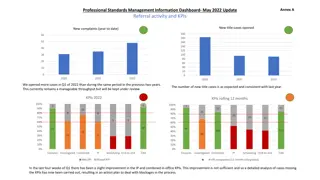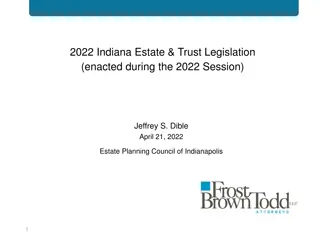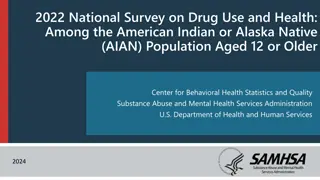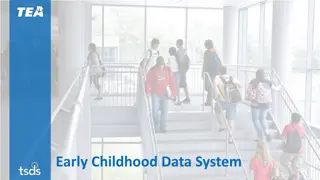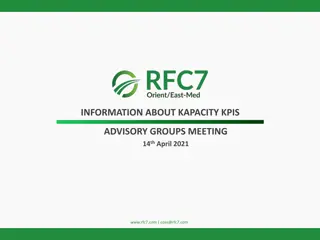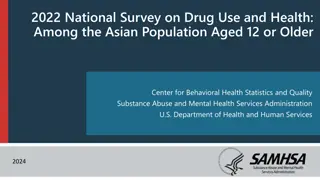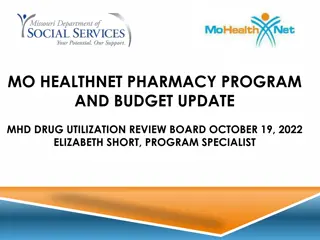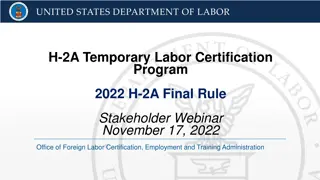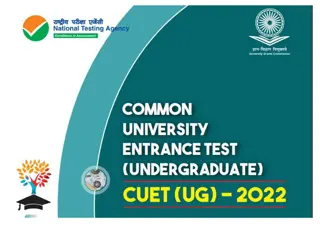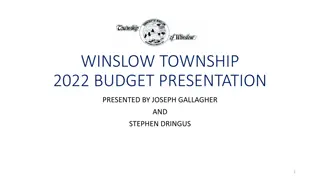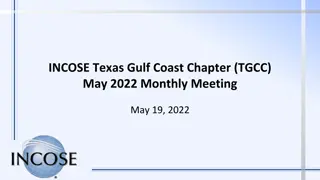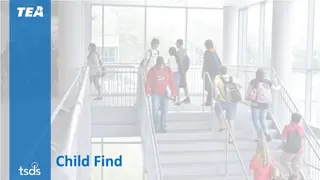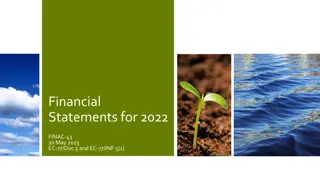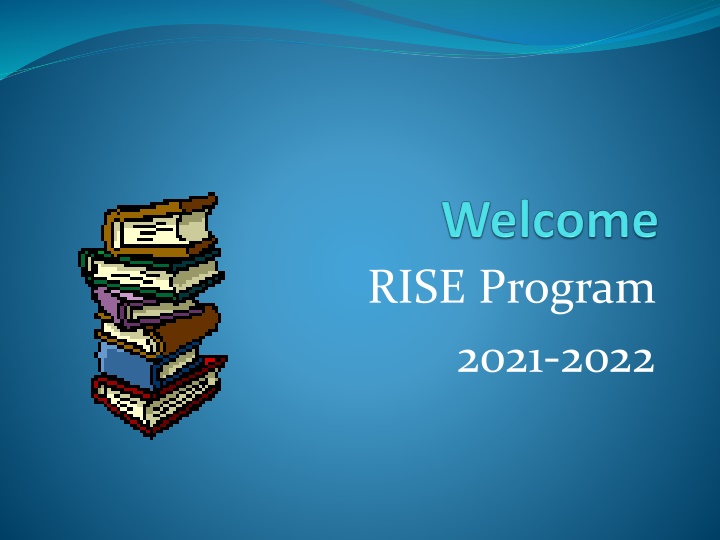
Unique Insights into RISE Program 2021-2022 and Staff Details
Discover the RISE Program schedule, staff information, expectations, star reward system, and weekly/monthly celebrations for the academic year 2021-2022. Get to know the dedicated staff members, daily routines, student expectations, and fun reward system in place to support and motivate students. Explore the comprehensive details of the RISE Program in this informative content.
Download Presentation

Please find below an Image/Link to download the presentation.
The content on the website is provided AS IS for your information and personal use only. It may not be sold, licensed, or shared on other websites without obtaining consent from the author. If you encounter any issues during the download, it is possible that the publisher has removed the file from their server.
You are allowed to download the files provided on this website for personal or commercial use, subject to the condition that they are used lawfully. All files are the property of their respective owners.
The content on the website is provided AS IS for your information and personal use only. It may not be sold, licensed, or shared on other websites without obtaining consent from the author.
E N D
Presentation Transcript
RISE Program 2021-2022
RISE Staff Other Staff CLASSROOM STAFF Dr. Castelli- Psychologist Mrs. Nessier- Speech & Language Mrs. Simone- Occupational Therapy Mrs. Barberetti-Physical therapy Mr. Kness- Teacher Mr. Ferony- Teaching Assistant Ms. Fajardo- 1:1 Aide
More Staff to know Administrations PKMS Clinical Staff Ms. White Mr. Fernandez Dr. Toro Nurse Mr. Peters Dr. Castelli Security Support Staff Mr. Merriweather Mr. Nigel Ms. Chemay
RISE SCHEDULE Day 1 HOME 7:45-9:00 OT/PT/Skills 1 9:03-9:44 Art 2 9:47-10:28 Functional Literacy 3 10:31-11:12 Functional Skills HO ME 7:45 - 9:00 OT/ PT/ Skil ls Art 1 9:03 - 9:44 9:47 - 10:2 8 2 Fun ctio nal Liter acy Fun ctio nal Skill s Fun ctio nal Mat h Lun ch/ Rec ess Mus ic/C hor us Mrs. Hatt em Mrs. Hatt em 4 11:15-11:56 Functional Math 3 10:31 - 11:12 4 11:15 - 11:56 5 11:59 - 12:4 0 12:4 3- 1:24 6 7 1:27- 2:08 8 2:11- 2:56 5 11:59-12:40 Lunch/Recess 6 12:43-1:24 Music/Chorus 7 1:27-2:08 Social Studies 8 2:11-2:56 Science
RISE SCHEDULE Day 2 OT/PT/Skills 7:45-9:00 HOME 7:45-9:00 OT/PT/Skills 1 9:03-9:44 Functional Literacy 2 9:47-10:28 Functional Skills 3 10:31-11:12 Functional Math 4 11:15-11:56 P.E. 5 11:59-12:40 Lunch/Recess 6 12:43-1:24 Music/Strings 7 1:27-2:08 Science 8 2:11-2:56 Social Studies
RISE Expectations Be respectful to everyone Give your best effort at all times Cooperate and listen to staff Respect school property Have a positive attitude and smile : ) Being NICE is FREE!!!!!
Star Reward System The STAR Reward system is a token behavior modification support system designed to keep students motivated to improve their social, emotional and academic skills by providing meaningful rewards. Students have the opportunity to earn ONE star for each period. Both behavior and academics are being evaluated Stars will be tallied up at the end of each day . Students are encouraged to earn at least 6 stars daily. If a student has NOT earned the minimum STARS for the week then they will be in the Reflection Center during Fun Friday activities. Students must also earn STARS consistently throughout each month in order to participate
STAR Weekly/Monthly Celebrations Each week students who makes their point total will participate in a fun Friday. At the end of Friday, students can select prizes from the treasure chest as well as healthy snacks. Fun Friday will be in the CLASSROOM with RISE staff on Friday afternoons. Students may choose to have free computer time or participate in a fun and creative activity.. At the end of each month we will have a celebration for students who earned the point goal that month Example Special snack period 8 with Movie in auditorium periods 3-5. If you earn your points you are eligible for an special treat or special luncheon
RISE PROGRAM Daily Student Point Tracker & Data DEMONSTRATE RESPONSIBILTY & SAFETY TIMES & LOCATIONS LISTENING & FOLLWING DIRECTIONS GIVING GOOD EFFORT HAVING A POSITIVE ATTITUDE COOPERATION WITH OTHERS TOTAL POINTS EARNED ARRIVAL & DISMISSAL 0 1 0 1 0 1 0 1 0 1 2 3 4 5 0 1 MORNING ACTIVITIES AFTERNOON ACTIVITIES ENCORE CLASSES TRANSITIONS & LUNCH/RECESS DAILY POINT TOTAL 0 1 0 1 0 1 0 1 0 1 0 1 2 3 4 5 0 1 0 1 0 1 0 1 0 1 0 1 2 3 4 5 0 1 0 1 0 1 0 1 0 1 0 1 2 3 4 5 0 1 0 1 0 1 0 1 0 1 0 1 2 3 4 5 __ /5 __ /5 __ /5 __ /5 __ /5 __ /25 COMMENTS. SPECIFIC OBSERVATIONS, DETAILS MUST BE INCLUDED WITH DATE
Check & Connect Each morning over breakfast the RISE staff checks in with every student in order to gage their social and emotional levels. Staff ask questions to see if there is anything going on students might want to talk about. This is an opportunity to express themselves and let a staff member know that they may need help or support with something. Each day Mr. Kness/Dr.Castelli will present some type of character education/social skills idea such as teaching respect, responsibility or how to effectively communicate their feelings..
PKMS RISE PROGRAM OVERVIEW Vision Our vision is for all people to be valued and respected, to be full participating members of communities, and to lead meaningful, enriched, and self-determined lifestyles
Mission Our mission is to support all the students in RISE and their families in planning, coordinating and developing resources that meet their unique needs and preferences. We hold that listening and collaborating with individuals and families is paramount, and by exchanging knowledge, information and skill, we will develop partnerships of mutual trust and respect.
We Believe All people are valuable and contribute to life in their communities. Communities benefit from the unique abilities, talents and gifts of all people, including those with disabilities. All people should have opportunities to be full, participating citizens of their communities.
We Strive to Develop Support Which: Provide opportunities for people to form and develop meaningful roles and relationships. Utilize person-centered and/or family-centered processes that are developed with affirmation, trust and sensitivity. Promote self-determination and honor personal choice. Utilize only positive approaches that are based on the highest standard and best practices models. Value human, cultural, individual, and family differences.
Peekskill Middle School R.I.S.E. Program "Reaching Independence through Skills Education" The RISE Life Skills program educates and empowers students who have diverse needs and abilities by providing a curriculum that promotes the life and social skills necessary for each learner to achieve greater levels of independence and reach their full potential thereby becoming confident and contributing members of their community. The goal of this educational program is to prepare students to become as independent as possible in their home communities. The program focuses on functional life skills that are embedded into daily activities
The Specific Areas of Focus for PKMS RISE are: The RISE program focuses on teaching the students necessary Life skills which equips the students with the social, emotional, academic and interpersonal skills that help enable them to cope with the demands of everyday life. The objectives of this program are to build self-confidence, encourage critical thinking, foster independence through functional activities and to help the students to communicate more effectively.
The RISE Life Skills Programs Broad and Specific Strands of Functional Academics The broad strand of functional academics focuses on the academic knowledge and skills that are necessary for a student to live independently in their post- secondary lives. With a focus on numeracy and literacy that relate to real world and everyday experiences, functional academics provide students the framework to be able to complete basic tasks independently, and at the higher level outcomes, learn skills necessary for meaningful employment after secondary school.
FUNCTIONAL ACADEMIC AND INSTRUCTIONAL LESSONS The students will be actively engaged in learning throughout the school day and the teacher will collect data on each student s progress. The data will be used to plan lessons, to create the next IEP, and to determine the need for Extended Year Services. The classroom activities will be functional and age- appropriate, and will change to meet the needs of the student. Classroom instruction will include individual, small group and community-based experiences.
FUNCTIONAL ACADEMIC AND INSTRUCTIONAL LESSONS The emphasis is to increase students levels of independence with decreasing levels of staff support across all environments. Students in the RISE Life skills program participate in a variety of activities to promote independence and improve functional academic, social, communication, vocational and self-help/adaptive behavior skills. Evidence-based instruction is a vital part of the Life skills program, fostering independence by providing students with the opportunity to generalize skills learned in the classroom across a variety of modalities.
FUNCTIONAL ACADEMIC AND INSTRUCTIONAL LESSONS RISE Life Skills classes are designed to meet the needs of students whose intellectual, developmental and academic levels are so delayed that participation in the general education program, even with modifications and accommodations is unfeasible. The focus of the RISE program is to teach functional skills in academics, daily living, vocational, recreation/leisure and community participation for students, at their individual ability levels. Instructional lessons in the classroom will be rigorous and reflect appropriate levels for each student.
Functional Literacy Specific areas of development: Comprehension of texts, purpose of texts, applications to self, building vocabulary, literacy in the community, and citizenship and world awareness.
Functional Literacy The learner outcomes under the specific strand of functional literacy focus on reading, writing, communicating, and understanding the English language. Learning to read a flyer, a map, or a menu is the focus of the most basic levels of the functional literacy strand. Learner outcomes in higher levels focus on reading and understanding short stories, using a dictionary or thesaurus, comprehending information read, developing graphaphonicand syntactic knowledge, and analyzing texts using higher orders of thinking. Exploring the world around them, and the various media and texts that it encompasses is also part of this strand, developing critical thought and becoming a more knowledgeable member of society.
Functional Numeracy Specific areas of development: Handling money, budgeting, time, schedules, basic math (Shapes, addition, subtraction, multiplication), kitchen math (fractions), measurement
Functional Numeracy Functional Numeracy in the life skills program focuses on the basic mathematics skills necessary to live independently, such as counting, adding and subtracting, using money, budgeting finances, and understanding time. In upper levels, learning to budget finances and skills necessary for working in a retail environment are also part of the curriculum. Using tactile manipulates alongside worksheets and interactive activities, students will gain the knowledge and skills necessary to achieve the numeracy goals set out in their IEPs.
Daily Living/Activity Skills Specific areas of development: Eating, Drinking, Dressing, Shopping & Food Preperation, Personal Hygiene, Cleaning, Navigating the community, Utilizing community resources, Job awareness, Follwing a schedule, Transportation, Managing communication with others:
Daily Living/Activity Skills The broad strand of daily activity skills focuses on socialization skills and practical knowledge necessary to excel in ordinary society. These skills include being able to self-regulate their own behaviour, socialize with others in a variety of settings, advocate for their rights and needs, and all the skills necessary to survive on one s own, such as using home appliances, cooking, cleaning, and basic hygiene. Daily living skills such as how to fill out an envelope and paying your bills also tie into the other strands such as numeracy and literacy
Social Skills / Vocational Skills Specific areas of development: Self-regulation, types of harassment, Communication skills, job knowledge, job related skills, self-advocacy and human rights.
Social Skills / Vocational Skills The social skills strand gives students the opportunity to learn how to engage each other, self-regulate themselves, and create meaningful relationships that are mutually beneficial. This strand encompasses mostly what would be considered the hidden curriculum, but also includes some direct instruction, role playing, and discussion seminars to guide students along the way. The learner outcomes that the student will be focusing on will largely depend on the student s behavior and social needs. In the upper level learner outcomes, students will learn about their rights, and get a general idea of citizenship and a sense of community. Several vocational skills, such as writing a cover letter and a resume, fall under the functional literacy strand. Vocational social skills include how to dress and act professionally, how to ask and answer appropriate questions, and exploring a variety of careers that they may be interested in.
Personal Living Skills Specific areas of development: Hygiene, cooking, healthy eating, laundry, knowledge of medication, public transportation, public facilities, use of technology, personal information.
Personal Living Skills The strand of personal living skills involves the required practical skills to survive on one s own, apart from reading, mathematics, and interpersonal skills. This strand includes basic hygiene, use of small and large appliances, travelling on a bus, grocery shopping, folding laundry, and taking care of pets. Students need to have the minimal skills required to live on their own with assistance in order to pass the level one outcomes of the personal living skills program. In the upper levels of the program, students will learn skills required to find success at a work situation, buy their own groceries, go to the bank, send and receive mail / emails, use a computer, and utilize other public services independently.
Physical Literacy The broad strand of physical literacy focuses on the student having the knowledge of him or herself to stay safe, be healthy, and have a good understanding of their physical self. Students in the life skills program need to be aware of what makes them unique, both physically and psychologically from others, so that they can excel on their own terms. At the very least, the students will have the self- awareness to not put themselves in danger and be able to explain their behavior, and some students will be able to name and describe their diagnosis, if they have one, and the particular challenges and adaptations to their lifestyle it requires
Confidence A primary objective of the RISE life skills program is a focus on personal students become more assertive, communicate effectively with others by developing good listening skills and learn to handle stress and deal with disappointments and setbacks. Our therapuetic classes help people to explore their beliefs and attitudes through group discussions and confidence building techniques such as positive visualization. We encourage the students to play to their strengths by engaging in creative activities at each of their levels and abilities.
Independence The RISE life skills program enables students in becoming more independent. For example, student who learns about money math at class doesn't have to depend as much on other people to help manage money. Students who learn to improve their functional skills in both reading and writing don't need to depend as much on others to perform basic tasks like writing letters or filling in forms.
Healthy Living The RISE life skills program teaches our students to be physically and emotionally self-reliant. Someone who is assertive and confident is more likely to enjoy nurturing relationships by being able to express his feelings and negotiate successfully with others. They will be better equipped to make rational decisions that will benefit himself and others. Staying healthy and making good eating choices while maintaining a level of physical activity is another crucial compnent in helping our students become more successful and developing a positveself image.
Communication The RISE life skills program helps students to communicate better with the outside world and to enjoy a better relationship with family and friends. Computer literacy, for example, is viewed as a life skill because information technology is an important part of daily living. People use computers to shop online, communicate with friends and coworkers, search for jobs and complete work-related tasks using computer software like documents and spreadsheets.
CONTACT INFORMATION ckness@peekskillschools.org 914 737-4542 Ext. 2317 PKMS RISE GOOGLE CLASSROOM CODE dtrgtjn

